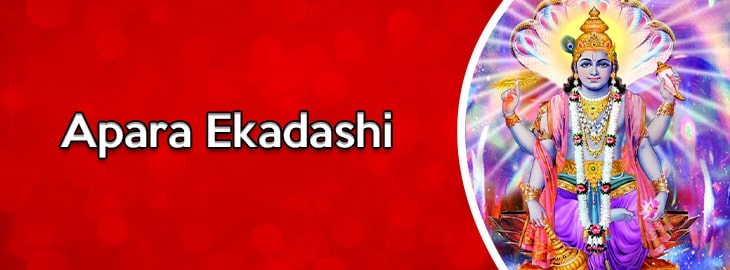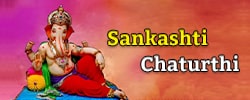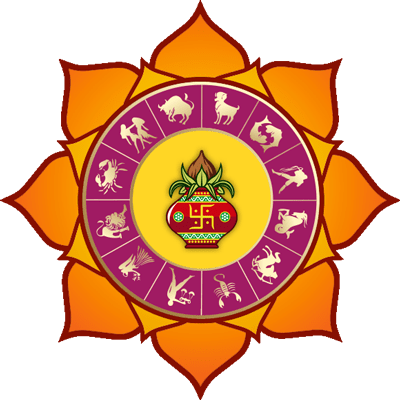
Apara Ekadashi Vrat
Get Apara Ekadashi 2025 vrat date and muhurat for New Delhi, India. People observing Apara or Achla Ekadashi vrat gets unlimited wealth and good fortune.
Apara Ekadashi Vrat 2025
When is Apara Ekadashi Vrat in 2025?
Fri
23rd
May
Apara Ekadashi Vrat Muhurat For New Delhi, India
Apara Ekadashi Parana Time : 05:26:08 to 08:10:52 on 24th, May
Duration : 2 Hour 44 Minute
Apara Ekadashi is known by 2 names - Apara and Ajala. Lord Trivikrama is devotion on this day. One meaning of Apara Ekadashi is that the virtue of this Ekadashi is huge. By fasting on this day, one’s virtue, wealth, and fame increase. Furthermore, one gets salvation from Brahman killing, and spirit world and blasphemy. One should worship Lord Vishnu with Tulsi, Kapoor or Camphor, Chandan or sandalwood, & Gangajal on this day.
Apara Ekadashi Vrat & Puja Vidhi
By fasting for Apara Ekadashi, people get rid from their and attain and sins salvation. The Pooja Vidhi for this Vrat is as follows:
- The day before Apara Ekadashi, i.e. on Dashmi, do not consume after sunset in the evening. In the night, sleep while chants the name of the God.
- On the day of Ekadashi, worship Lord Vishnu after bath in the early morning. One should offer Tulsi, Gangajal, Chandan, and fruits for the pujan.
- The person who is fasting on this day must not be misleading, and speak lies and evil. Rice is also not eaten on this day.
- Recite ‘Vishnu Sahasranama’. A person who recites ‘Vishnu Sahasranama’ on Ekadashi gets extremely blessed by the lord himself.
Significance of Apara Ekadashi Vrat
As depicted in Puranas, Apara Ekadashi holds a great significance. According to spiritual beliefs, the fruit that one gets from offering Pind Daan to the forefathers on the banks of river Ganga, the same is obtain by fasting for Apara Ekadashi. Similarly, the fruit one attains by visit Kedarnath or Badrinath in Kumbh or donate gold on Solar Eclipse, is similar to one gained due to the power of Apara Ekadashi Vrat.
Apara Ekadashi Vrat Katha
In pristine times, there was a saintly king named Mahidhwaj. His younger brother, Vajra Dhwaj, had a sense of hatred towards his elder brother. So, one day he killed the king and buried his body under a Peepal tree in the woods. Due to the premature death, the soul of the king became a sprite and stayed on that very peepal tree. The spirit used to haunt every person passing through that path. One day, when a Rishi was passing by from there, he saw the spirit. He used his power to find the reason for his condition. He lowered the king’s spirit from the tree and preached him about the afterlife. To free the spirit, the Rishi himself perform the Apara Ekadashi fast. On completion of the fast on the day of Dwadashi, he passed on its virtue to the spirit. With its power, the king’s soul got free from spirit world and went to paradise.



